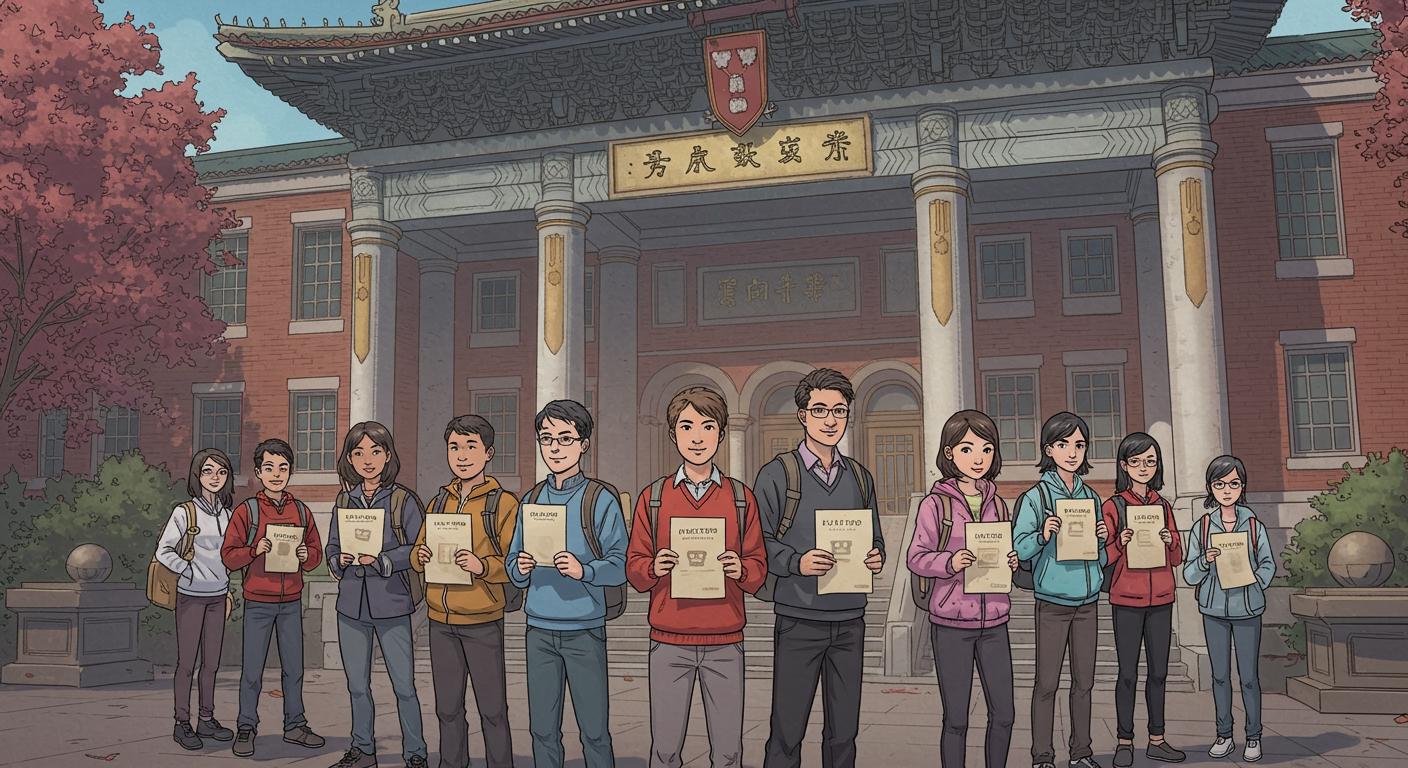If you happened to look up and spot a flock of stressed, suitcase-toting students migrating east, there’s a reason: The international academic food chain just got a little wilder. In a twist detailed by Newsweek, the Hong Kong University of Science and Technology (HKUST) has stepped in with “unconditional offers,” aimed squarely at international students currently enrolled at Harvard—this after the Trump administration abruptly removed Harvard’s ability to admit these students for the upcoming school year.
Welcome to College Admissions, Multiverse Edition
Competing over top students is nothing new, but one university, half a world away, tossing lifelines to students displaced by American policy? That’s a different sport. The U.S. government has revoked Harvard’s certification under the Student and Exchange Visitor Program (SEVP), citing claims that the university allowed an unsafe campus environment and even hosted and trained Chinese paramilitary members as recently as last year. These allegations—outlined in official statements and summarized by Newsweek—include accusations of both campus unrest and coordinated activities with the Chinese Communist Party. Unsurprisingly, Harvard strongly disputes the charges. According to the university’s spokesperson, Jason Newton, quoted in Newsweek, the action is “unlawful” and threatens both Harvard’s mission and the broader academic community.
For context, Harvard enrolls about 6,700 international students—a quarter of its student body—with over 1,200 of them hailing from China, statistics drawn from Harvard’s own data noted in the outlet’s report. For these students, the reality is stark: as described by the Department of Homeland Security, they will have to transfer to other institutions or risk losing their legal status in the U.S., a situation made clear by Newsweek’s coverage of the agency’s announcement.
HKUST, meanwhile, has reacted swiftly. Their “unconditional offers” come with expedited admissions, support for transferring credits, housing, and visa assistance, as detailed by the university’s own press release cited in Newsweek. A dedicated team is already set up to assist incoming transfers, all geared toward what Provost Guo Yike called ensuring “talented students can pursue their educational goals without disruption.” “Diversity fuels creativity and progress,” Guo added, encapsulating the tone of HKUST’s welcome—though one can imagine that “creativity” might take on new meaning during this hectic academic migration.
International Students: Caught in the Crossfire
While universities often tout their global reach, the current scenario feels less like internationalization and more like academic dodgeball. The Trump administration’s move comes bundled with rhetorical barbs, with Homeland Security Secretary Kristi Noem arguing in remarks highlighted by Newsweek that foreign student enrollment should be seen as a “privilege, not a right,” and linking tuition payments to the financial might of multibillion-dollar university endowments. The broader context outlined by the outlet shows a deepening rift—Harvard has filed a lawsuit to challenge over $2 billion in lost federal funding, and the school faces threats to its tax-exempt status, all indications of a policy clash that’s as much about ideology as it is about education.
Observers worry that the crackdown will push top global talent away from American universities. Newsweek references critics’ warnings that measures like the SEVP decertification could dramatically erode the U.S.’s reputation as the go-to destination for the world’s best and brightest. Former Harvard president Lawrence Summers, weighing in on X, lamented that targeting international students “violates norms of decency and fairness and will make us a poorer country.” For its part, China’s Foreign Ministry spokesperson Mao Ning, quoted in the same report, argued this approach will damage America’s own global standing and credibility.
Riding the Academic See-Saw: Who Wins, Who Loses?
HKUST, which sits at 66th place in the Times Higher Education’s 2025 global rankings, may not be Ivy League, but for students suddenly facing academic purgatory, it’s a concrete option, especially with formal guarantees for a “smooth transition,” as detailed by the university and relayed by Newsweek. Think of it as an expedited detour in the long-haul flight of higher education. The institution’s maneuver is as much a message as it is a solution: “If the U.S. sidelines its talent, others are happy to step in.”
Amidst all this, a rather surreal image emerges: international students, accustomed to the old-world halls of Cambridge, Massachusetts, now contemplating a move to HKUST’s campus on Clear Water Bay. Are we about to see the normalization of transcontinental academic transfers every time geopolitics shifts direction?
The broader irony, as Newsweek’s reporting makes clear, is hard to ignore—by seeking to limit foreign influence and dramatic campus activism, is U.S. policy inadvertently encouraging both competition and cross-border academic brain drain?
The Oddity Continues
With Chinese universities making open plays for students displaced by American political sport, it does beg the question: What is the real value of a prestigious degree when policy can upend a student’s path overnight? And will the next generation of global leaders someday gather in a Hong Kong lecture hall to trade stories of the year their Harvard plans got “rerouted”?
From Portland, the whole thing feels like a dispatch from the “You Can’t Make This Up” desk: a tale of Ivy League refugees, international lifeboats, and a grand, unpredictable game of institutional leapfrog. Perhaps future commencements will hand out diplomas along with boarding passes—just in case the destination changes again.







